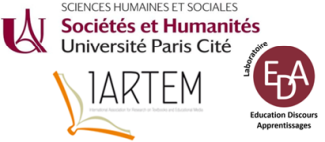The aim of our proposal is to present a project-grounded research within the Documentation and Information Center of an agricultural high school specializing in horticultural production and landscaping. This investigation echoes the main theme of the conference: on one hand, environmental issues: official programs and prescriptions include the ecological question, on the other hand, social changes: we note a lack of use, or even disinterest, in the Documentation and Information Center and its resources.
Our ambition is to rethink the Documentation and Information Center as a central area to access resources, resources that contribute to the development of learners' academic, professional and civic skills. What kind of mediation is needed to attract and retain learners? How can the Documentation and Information Center be used by teachers to familiarize learners with school culture? How can we create a continuum between theoretical content and professional skills that can enrich professional practices, particularly in the light of environmental issues? Finally, how can we create an ecological place regarding environment and documentary, that respects the cycle life of the resource (from acquisition to potential obsolescence)? This work on the life cycle leads to a broader reflection on the circulation of resources, firstly within the high school, but also within the region, by mobilizing the various players - institutional, associative and professional - likely to be involved with learners.
Explanation of method and/or methodology and its relevance towards the research question: We chose the project-grounded research approach defined by Findeli (2005). This approach makes it possible to engage the participation of players in the field, who can thus contribute to redefining their role and modifying their practices.
Description of the data and how the data are analysed if empirical research: This approach is based on several phases of analysis and investigation. In phase 1, our work is based on ethnographic immersions: field surveys in the Documentation and Information Center and cultural spaces, mapping of resources, photographs of spatial organization, analysis of signage and resource classification, observations of the using of Documentation and Information Center, semi-directive interviews with teachers, and the teacher-library, involved in this research-project with the dual capacity of an actor and researcher. These data are cross-referenced with screenshots and statistics on the use of Documentation and Information Center resources. We are also studying institutional texts (reference documents, curricula, etc.).
In this presentation, we will focus on the process of recycling resources to counteract their uselessness and their obsolescence.
Results or preliminary results: Our initial results show that the eclecticism and sedimentation of signage and classification do not encourage the use of resources by teachers and learners. In addition, the Documentation and Information Center is not well connected to professional spaces (operations, laboratories, etc.).
This leads us to work on a homeostasis of resources on the scale of the establishment and the territory, but also on the scale of the landscape. It seems essential to us to propose a more synergistic vision of access to resources, one that is not bottom-up and less standardized (Dégheil and Huz, 2019; Dégheil, 2019), with the aim of encouraging borrowing and consultation.
At the stage of our research, the third place model would be a relevant model for rethinking the circulation of resources and thus fostering a "capacitating" environment (Falzon, 2013).
References:
Dégheil, S., & Huz, O. (2019). Préface. Dans Depuis-là, Ailleurs (p. 13-14). Atelier Genius, ISDAT.
Dégheil, S., (2019). Folklore signalétique. Dans Depuis-là, Ailleurs (p. 47-70). Atelier Genius, ISDAT.
Falzon, P. (2013). Ergonomie constructive. PUF.
Findeli, A. (2005). La recherche-projet : une méthode pour la recherche en design. Dans R. Michel (Dir.), Erstes Designforschungssymposium, Zurich, SwissDesignNetwork 2005 (p. 40-51). SwissDesignNetwork
- Poster

 PDF version
PDF version

